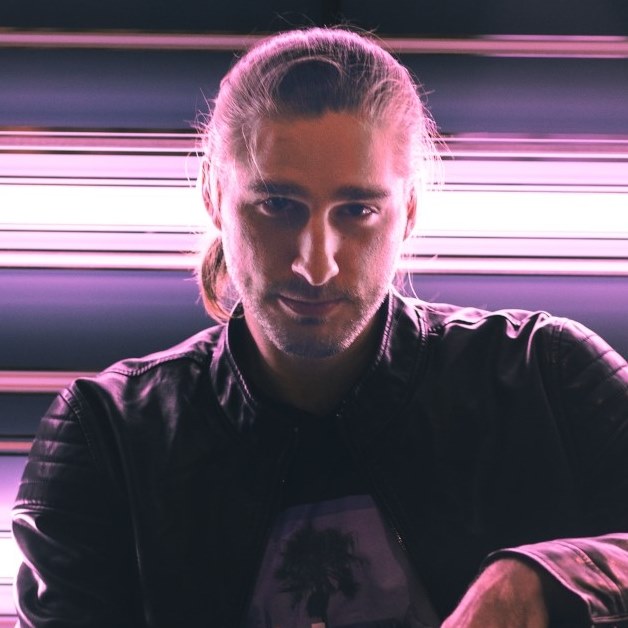
Mike Bello discusses his top tips for producing music
Australian DJ and producer Mike Bello has made some sensational waves after spending years perfecting his craft with collaborations with artists such as Takahiro Yoshihira and Olivia Addams along with releasing his very own tracks such as ‘Plug’ which was released on the renowned Harmor Records. We sat down with Mike to discuss his top tips for budding music producers looking to break into the scene. Check out what he had to say below.
Do you think that it is essential to be able to play an instrument or to be able to know music theory first before learning how to produce?
I wouldn’t say playing an instrument is completely essential, although it definitely does help. On the other hand, I personally think at least some level of music theory knowledge is essential. Without any understanding of music theory, it would take much longer to learn music production whereas just a little bit of music theory knowledge would not only make it easier to learn and understand how to produce, but it would also help you to make more interesting music.
What equipment would you suggest is best for a beginner to buy?
- A decent computer with at least the minimum specs of your chosen music production software (DAW).
- Then, of course, you would need that software (there is some great free music production software on both Windows and Mac that is good for beginners).
- For a beginner, I’d suggest headphones instead of speakers, that’s because monitor speakers will also require proper placement and acoustic treatment in the room, which may not be ideal for a beginner. The Sennheiser HD280 pros are great low-cost headphones.
- An audio interface, the Focusrite Scarlett is a great low-cost audio interface.
- And lastly, it’s not essential but a midi keyboard can be great for both helping to learn music theory and for learning to play and record keyboard by yourself.
Can you suggest any good YouTube channels or blogs for people to learn from?
Au5, Metrik, Virtual Riot, and John Christian all have great tutorials on their YouTube Channels. If you use Serum and would like to learn more about all its features, Icon Collective and ADSR have some great Serum tutorials. And as for blogs, Sound on Sound has a wealth of knowledge on all kinds of topics related to music, production, mixing & mastering, and acoustics.
I also have some playlists on my own YouTube channel, which are collections of my favourite music production masterclasses and studio sessions with different producers so you can check those out too.
What are some bad habits new producers should try to avoid?
Clipping. Clipping is definitely something that should always be avoided. It’s also important to watch the audio levels that are being sent into and out of plugins as they can build up quite quickly and can sometimes cause some nasty effects.
Not gain staging is another bad habit to avoid. You should always set the gain of your tracks early and leave enough room to account for the fact that some tracks may be grouped together into a single bus which will increase the output level of the bus. So, try to leave enough room for that.
How do you spark your creativity?
I usually just force myself to keep writing down ideas. Whenever I’m starting on a new project, I will decide first what type of song I want to create to start with, then I’ll start playing around with different sounds and melodies. It doesn’t always end up being the type of song I had originally planned, and I think it’s totally okay to change direction at any point in the production process, but initially, it does help me to have some sort of plan. Sometimes I’ll browse through synth presets just for inspiration, sometimes I’ll hear something that might trigger an idea. Other times I’ll already have an idea in my head, and I’ll start designing different sounds or tweaking the melodic idea slightly.
Another thing that helps me is to actually just listen to music from other artists. Sometimes listening to music alone can help me to get my brain into a creative flow and it also helps me to decide what type of song I want to create.
One thing I find to always be true for myself is that it really helps if I have a solid idea of what type of song or what type of vibe I want to create. I find that having a pre-planned direction of what I am trying to do with a song makes it both faster and easier to write.
How do you normally approach writing a new song?
I try to start each new song differently in some way. So sometimes I’ll start a song with a melodic idea, sometimes I’ll start with the bassline, sometimes I’ll start with the drop, and sometimes I’ll start with the intro. I think this helps me to bring fresh ideas into each song and allows me to look at the whole production process from a slightly different perspective each time.
What piece of advice do you wish was given to you when you first started producing music?
Take regular breaks. This is so important because after listening to the same thing for a long time our perception of the sound changes slightly. Our brain can do some pretty amazing things and if you are focussing on one element of the mix for a long time such as the kick or bass, your brain may actually make those elements sound much more prominent while also dulling out some of the other sounds in the mix. Take regular breaks and always remember to use reference tracks to compare your mix with.
Which plug-ins are best to use?
The plugins you know. There are so many plugins available and of course, some are better than others, but I think the most important thing is knowing how to use the plugins you already have an understanding their character and what they do to the sound. You can make great music with just the built-in plugins of your DAW.
If I was going to pick my favourites though I’d say Fabfilter Pro-Q 3 for EQ, anything from Brainworx is amazing, for reverb I love the Lexicon LXP or Valhalla reverbs, LFO tool also makes its way into all of my projects and it’s free, Noveltech Character is my secret weapon for saturation, and for some great value mixing and mastering bundles iZotope’s Neutron and Ozone are really great.
Do you think it is essential to learn how to mix and master?
As a producer, I think it is quite essential. There is really no reason not to. Learning to mix and master will help you to understand how all the individual elements of your song are going to come together to produce the final result. It will also save you a lot of time and money along with giving you much more flexibility and freedom in bringing your ideas to life.
There are so many resources online, and you can learn a lot about the science of sound and music from your own home just by watching tutorials on YouTube or reading articles and books. Just make sure that you are getting your information from a reliable source. If you are watching tutorials on YouTube, make sure you listen to their released music to get an idea of their production quality first.
What is your advice on sampling?
Experiment as much as you can. Try things that are not supposed to work or that seem totally crazy, you might be surprised by the result. You usually want the best quality of recordings possible, unless you are specifically looking for low quality for a certain effect. Use quality samples and play around with different combinations of effects and processing to come up with interesting and unique results. Sometimes breaking all the rules is exactly what is needed to get the right sound for your track.
Mike Bello Online
www.instagram.com/mikebellomusic
www.facebook.com/mikebellomusic










